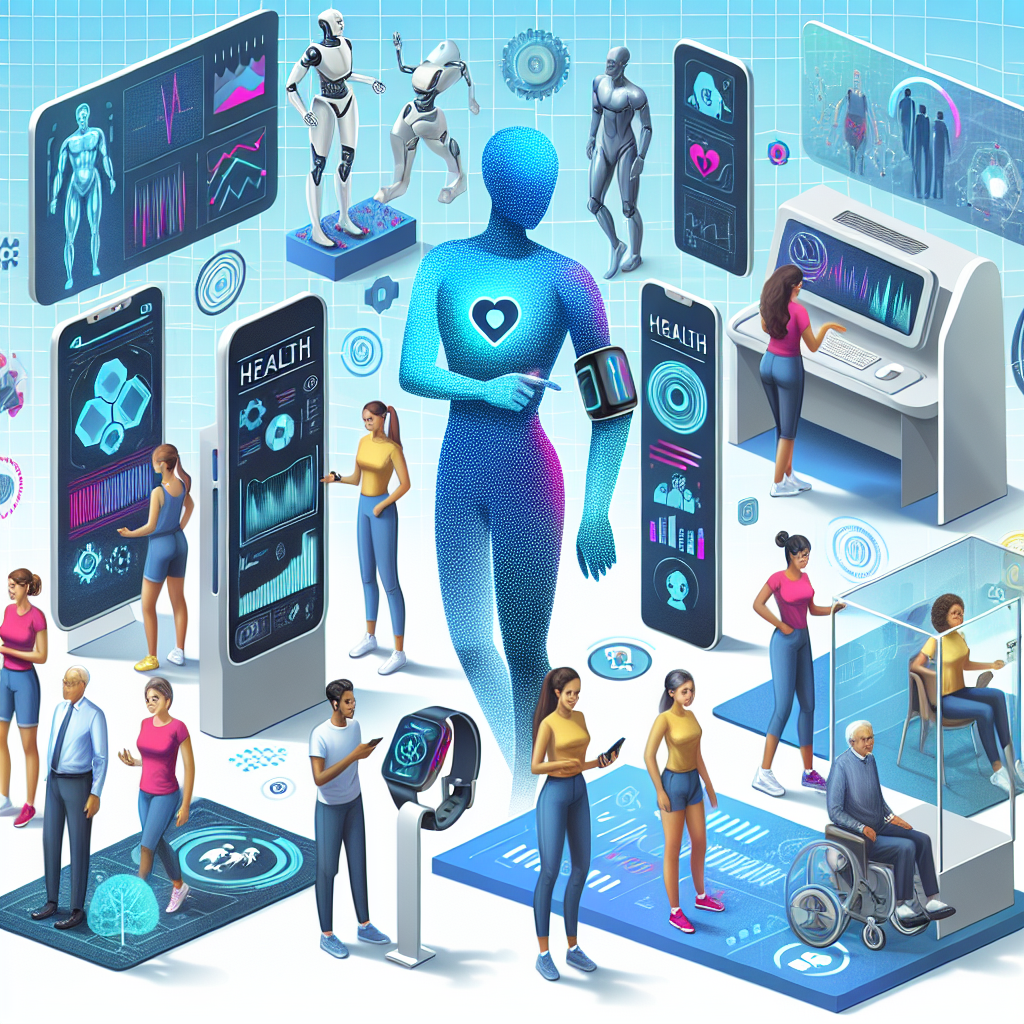In recent years, there has been a significant rise in the use of artificial intelligence (AI) in various industries, including healthcare. One of the areas where AI is making a big impact is in personalized health monitoring. Personalized health monitoring is the process of using data collected from individuals to provide tailored recommendations and interventions to improve their health and well-being. AI plays a crucial role in this process by analyzing large amounts of data and identifying patterns and trends that can help healthcare providers make more informed decisions.
AI in personalized health monitoring can take many forms, from wearable devices that track vital signs and activity levels to apps that analyze dietary habits and suggest personalized meal plans. These technologies are revolutionizing the way we approach healthcare by providing real-time insights into our health and allowing for more proactive interventions.
One of the key benefits of AI in personalized health monitoring is the ability to detect health issues early on. By continuously monitoring various health parameters, AI can identify subtle changes that may indicate a potential health problem. For example, wearable devices equipped with AI algorithms can detect irregular heart rhythms or changes in blood pressure, alerting the user to seek medical attention before a serious issue arises.
AI can also help individuals make more informed decisions about their health by providing personalized recommendations based on their unique health profile. For example, an AI-powered app can analyze a person’s dietary habits and suggest ways to improve their nutrition based on their specific needs and goals. This personalized approach to health monitoring can lead to better outcomes and a higher level of engagement from individuals in managing their health.
Furthermore, AI can play a crucial role in remote monitoring, allowing healthcare providers to keep track of patients’ health outside of traditional clinical settings. This is especially important for individuals with chronic conditions or those who live in remote areas where access to healthcare may be limited. By using AI-powered devices, patients can receive continuous monitoring and support from healthcare providers, leading to improved outcomes and a higher quality of life.
Overall, the role of AI in personalized health monitoring is poised to revolutionize the healthcare industry by providing more personalized and proactive care to individuals. With the ability to analyze vast amounts of data and provide tailored recommendations, AI is helping to shift the focus of healthcare from reactive to preventive, ultimately leading to better outcomes and a healthier population.
FAQs:
Q: How does AI in personalized health monitoring work?
A: AI in personalized health monitoring works by collecting data from various sources, such as wearable devices, apps, and electronic health records, and analyzing this data to identify patterns and trends that can help healthcare providers make more informed decisions. By using algorithms and machine learning techniques, AI can provide personalized recommendations and interventions to improve an individual’s health and well-being.
Q: What are some examples of AI in personalized health monitoring?
A: Some examples of AI in personalized health monitoring include wearable devices that track vital signs and activity levels, apps that analyze dietary habits and suggest personalized meal plans, and remote monitoring systems that allow healthcare providers to keep track of patients’ health outside of traditional clinical settings.
Q: Is AI in personalized health monitoring secure and private?
A: Yes, AI in personalized health monitoring is designed to be secure and private, with strict protocols in place to protect individuals’ data. Healthcare providers and technology companies that use AI in personalized health monitoring must comply with strict regulations and guidelines to ensure the privacy and security of individuals’ health information.
Q: How can individuals benefit from AI in personalized health monitoring?
A: Individuals can benefit from AI in personalized health monitoring by receiving tailored recommendations and interventions to improve their health and well-being. By using AI-powered devices and apps, individuals can track their health parameters, receive real-time insights into their health, and make more informed decisions about their well-being. Ultimately, AI in personalized health monitoring can lead to better outcomes and a higher quality of life for individuals.

